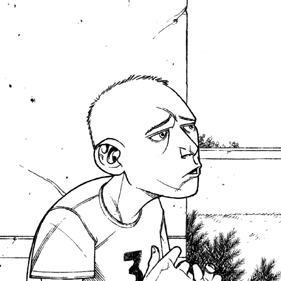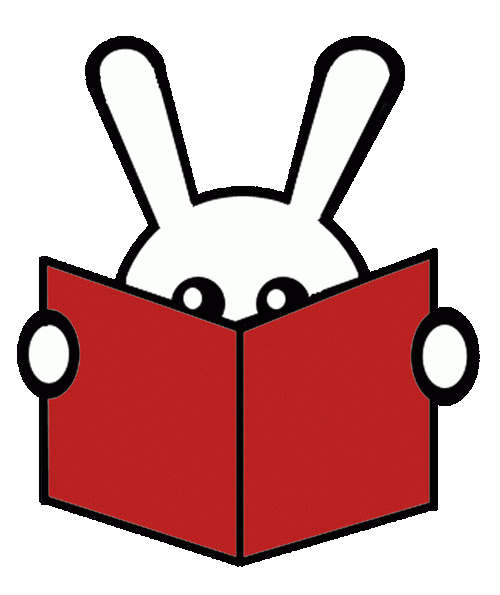Jonathan Adams
on Truth Serum
Interview by Amanda Divine

After winning the award for Best Drawer at his third grade talent show, Jon decided to dedicate the rest of his life to "art," despite any, more rational or pragmatic options. While the rest of his family went on to pursue less selfish and more fruitful endeavors, Jon squandered away countless hours, alone in his room, drawing pictures of men and women wearing ridiculous outfits, until he got "really good." Now he can draw better than the average child, but still probably qualifies for food stamps. Or, at the very least, he qualifies for feelings of pity.
Amanda Divine: Which artists were you tracing as a child?
Jonathan Adams: Do you mean literally trace, or figuratively? Because I did once trace a drawing of Captain America and pass it off as my own. Even though it was clearly beyond the capabilities of any 7-year-old and also on tracing paper. I obviously wasn't too smart. But there were a number of artists that I admired, some of whom I regret liking. Todd McFarlane, for instance. I loved John Byrne's work, and still think some of it was great, though the stuff he's producing now seems fairly crappy. I loved Ron Frenz when he was working on Amazing Spider-Man of course. June Brigman, who did Power Pack, was fantastic, and I even got her to do a pin-up for the Truth Serum book. Sandy Plunkett should have done more work, but it seemed like I'd rarely see his stuff around. Then there's Kevin Nowlan, though I was into him in my later teen years, not so much my childhood.
Amanda: Why the Todd McFarlane regrets? The fact that he's become a toy mogul or because you realized that all the cross-hatching was carefully crafted camouflage for bad art?
Jonathan Adams: The McFarlane regrets are just because, you know, you don't want to be associated with anybody that sucks. He didn't suck at the time, or so I thought, but he certainly is a hack now. And looking back at the stuff he was doing when I liked him, it's just utterly bizarre artwork. He throws lines all over the place and it makes no sense. I mean, somebody like Bill Sienkewicz may throw lines haphazardly, but there's something behind it. And it's beautiful. With McFarlane's art it just looks like somebody kept bumping his elbow while he was trying to ink it.
Amanda: You seem to have a love-hate relationship overall with the superhero comics of today…
Jonathan Adams: Yeah. I certainly do have a love-hate relationship with the superhero comics of today. I did an interview for my book with The Pulse and went off on this rant about how short-sighted superhero comics are. It never made it into the interview. But, basically, my problem isn't with the intrinsic nature of superheroes. As preposterous an idea as it is for somebody to wear a skintight costume and shoot energy beams out of various body parts is, I recognize the validity of such stories. But their dominance over the industry and art form is so off-putting to anybody who thinks they may be interested in comics. Most people, who don't know anything about comics, think that's all they're about. They're surprised to find out that you can make a comic about anything, the same way you would a book, movie or song. But the bigger comic companies have very little interest in doing anything different. They want to stick to the one thing that's sorta been working, even if it has no mass appeal, because they're terrified to make any real changes. And you'd think they may notice that books like Blankets get written up in Entertainment Weekly while nobody in the mainstream media gives a shit about the latest issue of Green Lantern. I could really go on about this, but I won't. So basically, you know, I have a problem with one of the worst aspects of the art form and am eager to make fun of how absurd and myopic it is.
Amanda: So, do you think that the glut of superheroes causes harm to independent artists? Some comic fans are going to pick up your work, or gravitate toward other quality material. Is that offset by people afraid to pick up any sort of graphic novel because of that underwear-on-the-outside stigma?
Jonathan Adams: The glut of superheroes harms the industry and art form as a whole because it stifles some truly amazing and groundbreaking artists. It inhibits them in terms of being able to devote more time to their work. Think of how much work somebody like Al Columbia could do if he was making as much money as Jim Lee. I mean, I have no idea what Al Columbia does to make money, and he may very well enjoy it. But I know he's not making a real living doing comics. If the opportunity for people like him was there, the industry would be propelled into mainstream culture. But instead, it's a stunted and unfulfilled art form.
Amanda: Are you interested in starting something completely different with the release of the Truth Serum collection, or is this a theme you'd like to explore more?
Jonathan Adams: I'll be doing a lot more Truth Serum work. There are a number of stories I've written that, sadly, I have yet to draw. There are a few more projects on my plate right now, and when they're done in the coming months, I'll begin work on the next Truth Serum book, focusing completely on that. Hopefully. There are other things I want to do, things that wouldn't fit in with the Truth Serum stories, but I'm in no hurry to do them.
Amanda: When you say you will completely focus on Truth Serum, does that mean you will be doing the comic full time?
Jonathan Adams: Oh, goodness no. I wish. I wish I could afford to, but no. I just mean that, aside from my day job, all I plan to do is my comic. I keep getting sidetracked with stuff. I did a bunch of art for my friend Ryan Montbleau's new CD. And I'm going to do a large window display for 826 Valencia here in San Francisco. That'll be a huge project. And though all these things are really fun, I just need to focus on Truth Serum. I don't want it to be another three years before I can put out a book.
Amanda: Are you happy with how the book turned out? How has the feedback been?
Jonathan Adams: I'm super happy with the book. It's rare that I'm so happy with my work, but I think the book looks great. Being my first self-published book, I was really nervous about how it would come out. And until I had a copy in my hand and I could see it, I was sure it would be riddled with errors. And the reception has been great. So far nothing but positive responses. Wizard Magazine, of all places, gave me a great review in their latest issue. A 2-page spread, and they even stuck a small image of one of my characters on their cover. Totally crazy that that happened.
Amanda: You do amazingly fine detail work that looks like it must be fairly time-consuming. In Crumb, he talks about how a lot of that detail work is relaxing and therapeutic. Is that the case for you, or is it just a form of self-torture?
Jonathan Adams: It's a little tortorous at times because it takes me so long to draw, but there is an aspect to it that's relaxing. It's great fun to just sink into whatever I'm working on and not be distracted by the outside world. It's probably sort of meditative, in ways I'm not aware of. But I think the writing is more therapeutic than the art. My stories often come directly from things in my life and work as a catharsis. But the art, I'm not sure where that comes from. I try not to think about it.
Amanda: And finally, who is doing the best stuff right now that nobody else knows about?
Jonathan Adams: I don't think there's anything that nobody knows about, but there are a few people that aren't widely known. Anders Nilsen, who's recently been picked up by Drawn & Quarterly, is making some pretty amazing work. I first saw his book Big Questions, which is a self-published work a while ago. It's this surreal, but completely engrossing book. I don't really know how to describe it. At last year's Alternative Press Expo there seemed to be an abundance of brilliant and innovative works, mostly being done in mini comics. I wish I'd had more time to look around at it all. I plan to this year.
Jonathan Adams' latest publication is the collected Truth Serum, published this January.
More of his work can be found at his website, The University of Myopia.
Interview conducted by email, February of 2006
Copyright © 2006 Adventures Underground
More Interviews
